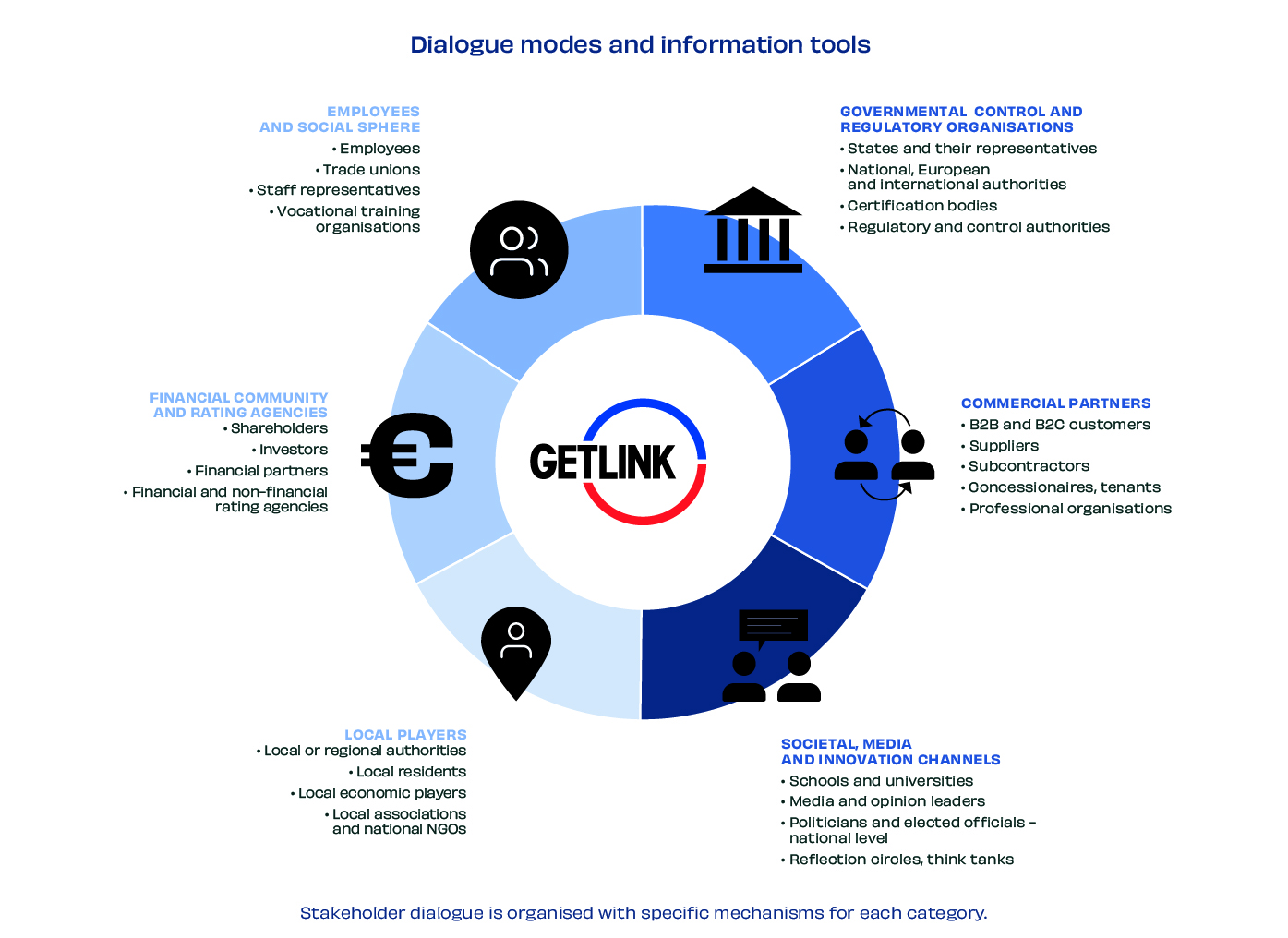2022 Materiality matrix
What is materiality?
Materiality, a concept coming from the financial world, which is transposed to non-financial aspects, defines what can have a significant impact on an organisation’s activities and on its capacity to create value for itself and its stakeholders. Today, materiality analysis is at the heart of any CSR approach. It enables the identification of the most relevant issues in a consensual manner with the company’s main stakeholders and their prioritisation.
The materiality analysis of the Getlink Group
To adapt and meet the challenges of the Group’s transformation, Getlink is committed to listening to its stakeholders (employees, customers, suppliers, shareholders, community, etc.) to better meet their expectations, promote the creation of shared value, and strengthen the Group’s overall performance. As early as 2015, Getlink carried out an initial materiality analysis. In 2019, and then in 2022, the Group updated its materiality analysis, considering the significant developments of the last three years both internally and externally (operational start-up of ElecLink in May 2022, end of the lockdown periods and restrictions due to Covid-19, stabilised impacts of Brexit after various stages of implementation, war in Ukraine, etc.). This essential stage makes it possible to keep the relevance of the priority issues up to date and thus to secure the Group in the revision of its CSR strategy by prioritising the actions to be taken.
Methodology
Carried out with the support of a reference consultancy, the update was carried out in four stages:
- Diagnosis in the form of a contextual analysis. Consideration of recent global issues for key players in the transport and transport infrastructure management sector: 23 key CSR issues were identified or confirmed for the Group.
- Stakeholder consultation. A double consultation process was carried out with a panel of internal and external stakeholders, representative of the Group. A series of 23 interviews was conducted within the various Group entities, both English and French. At the same time, an online questionnaire, distributed to a representative internal panel gathered 21 additional opinions.
- Prioritisation of issues. Identification by the Executive Committee of the relative impact of each CSR issue on the Group’s activities and establishment of a hierarchy of impacts. The exercise was carried out in the presence of ExCom members during two working sessions.
- Graphic presentation of the results of the materiality analysis (materiality matrix). The 23 most important CSR issues were grouped into three main themes (Environment, Social and Governance – ESG) and three levels of priority (strategic issues, important issues, issues to be monitored – see illustration below).
Results and materiality matrix
The matrix presents the key issues in order of priority, with the level of expectation of internal and external stakeholders on the ordinate and their impact on the Group on the abscissa; the material issues for Getlink are classified into three main themes (E, S and G) and are positioned according to three levels of priority:
- 6 strategic issues
- 12 important issues
- 5 issues to be monitored
Getlink’s stakeholder mapping, dialogue modes and information tools




